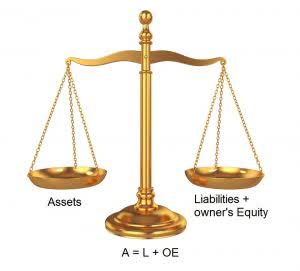
Revenue can be divided into the operating revenue from a company’s core business and non-operating revenue derived from secondary sources. In a credit transaction, the cash does not change the hands immediately at the time when the transaction occurs. Upon your request, your vendor agrees to receive the payment of $1,000 for goods sold to you next weak. You take the possession of the goods and transport them to your store. It is a credit transaction because you have not made the payment in cash immediately at the time of purchase of goods. This is also a credit transaction because you have not received the payment in cash at the time of sale of goods to Mr. Sam.
Financial Transparency and Stakeholder Trust
By hiring an accountant, using a software solution, or a combination of both, you can improve profitability and the financial health of your personal life and business. Cost accounting, for example, helps businesses determine the cost of producing goods or services, enabling more accurate pricing decisions. Managerial accounting, on the other hand, focuses on internal analysis to support strategic initiatives like process improvement or resource allocation. Financial statements derived from accounting records provide a snapshot of a company’s performance, helping stakeholders assess whether the business is meeting its objectives.
Cost accounting

These transactions are summarized into financial statements, such as the balance sheet, income statement, and cash flow statement, that show a company’s performance and financial health. Financial accounting focuses on the preparation and reporting of financial statements for external users, such as investors, creditors, regulators, and the general public. It involves recording, classifying, summarizing, and communicating financial transactions and information in accordance with accounting principles and standards (such as GAAP or IFRS). The primary objective is to provide an accurate and reliable overview of a company’s financial performance, position, and cash flows. Accountants help businesses maintain accurate and timely records of their finances.
What Are the Tasks of an Accountant?
Check out our recent piece on the best accounting software for small businesses. Employing an in-house accountant offers significant benefits for large and growing medium-sized businesses, including availability and real-time access. With real-time access, business owners can get answers to queries that will guide the financial decisions of the business. Having an on-staff and on-site accountant to provide guidance and support can help an enterprise grow. Considered a part of managerial accounting, cost accounting focuses on the cost structure of a business. Cost accounting aims to streamline overall operations, reduce costs, and increase profit margins and is particularly useful for manufacturing businesses.
- In most countries, companies follow either Generally Accepted Accounting Principles (GAAP) or International Financial Reporting Standards (IFRS).
- Accounting is how individuals and organizations, including small businesses, track finances.
- A public company’s income statement is an example of financial accounting.
- It involves recording, classifying, summarizing, and communicating financial transactions and information in accordance with accounting principles and standards (such as GAAP or IFRS).
- Accountants can also work for themselves, setting up their own small business and freelancing their services out.
- It provides the data needed for budgeting, forecasting, and evaluating profitability.
This highlights how Accounting is essential for day-to-day operations and long-term financial planning. The International Financial Reporting Standards (IFRS) provide a global framework for preparing financial statements, enhancing transparency and comparability. Accounting entails organising data into meaningful reviews, together with https://dev-fiazsoomro.pantheonsite.io/2023/03/15/12-best-reconciliation-tools-ultimate-guide-2026/ balance sheets and earnings statements, that help stakeholders in making informed choices.

- It is a necessary tool for developing trust and lengthy-term achievement.
- Organizations are obligated to maintain accurate financial records, prepare financial statements in accordance with accounting standards (such as GAAP or IFRS), and fulfill tax obligations.
- This comprehensive business accounting guide will explore the basics of accounting in business and provide practical tips to help you manage your business finances effectively and strategically.
- An Italian mathematician and friend of Leonardo da Vinci, Pacioli published a book on the double-entry system of bookkeeping in 1494.
- Whether you’re looking to hire accountants or give them more tools, accounting software can help.
- Note that some components (i.e. discounts) should only be subtracted if the unit price used in the earlier part of the formula is at market (not discount) price.
The formation of the institute occurred in large part due to the Industrial Revolution. Merchants not only needed to track their records but sought to avoid bankruptcy as well. The history of accounting has been around almost as long as money itself. Accounting history dates back to ancient civilizations in Mesopotamia, Egypt, and Babylon. For example, during the Roman Empire, the government had detailed records of its finances.

- Accounting is like a powerful machine where you input raw data (figures) and get processed information (financial statements).
- Managerial accounting is a more relaxed type of accounting that provides detailed information on the company’s operations for internal use, including budgeting, cost, and financial analysis.
- Financial statements need to be transparent, reliable, and accurate.
- They help accountants determine a company’s status and projections.
- You don’t have to be a financial expert to run a successful business.
- A shareholders’ equity statement reports how a company’s equity changes from one period to another, as opposed to a balance sheet, which is a snapshot of equity at a single point in time.
- Cost accounting aims to streamline overall operations, reduce costs, and increase profit margins and is particularly useful for manufacturing businesses.
Focuses on analyzing the costs of production or service delivery to help businesses control expenses and improve profitability. Involves providing financial information to a company’s management team to aid in decision-making, budgeting, and performance evaluation. The Securities and Exchange Commission has an entire financial reporting manual outlining the reporting requirements of public companies. Some accounting software is considered better virtual accountant for small businesses such as QuickBooks, Quicken, FreshBooks, Xero, or Sage 50. Business accounting is the systematic recording, analyzing, interpreting and presenting of financial information. Accounting may be done by one person in a small business, or by different teams in large organizations.
Our premium package even includes tax filing, which makes all accounting tasks completely automated. It also shows all your bank account balances so you can reference both at the same time. It’s the perfect report to review to make sure you have the cash available to tend to your debts and plan future payments. business accounting definition Most small businesses have more basic accounting needs, which means cash basis is often the right fit. The method you use depends on what you need from your business finances. Cash basis is simpler and easier to stay on top of, while accrual offers greater insights for more detail-oriented business owners.

